As a Navy SEAL for 20 years, who reached the rank of Lieutenant Commander and served in Iraq and Afghanistan, Jack Carr knows about warfare on an expert and visceral level.
And as the New York Times bestselling author of The Terminal List series and writer of the Amazon hit show based on the books, starring Chris Pratt, he knows the power of words.
He also has a tendency to succeed at whatever he turns his mind to (see the above). But, still, when he decided the Department of Defense should be renamed the Department of War, it seemed like a very tall order and he was a lone voice. Undeterred, he wrote in op-eds about how the department had lost its way and needed to refocus on warfighting by changing its name back to that it was given in 1789. He urged the vital name change in the pages of his novels, on TV and he even interviewed Pete Hegseth on his podcast just before he was appointed Secretary of Defense by Donald Trump.
Perhaps, then, it should have come as no surprise when the President signed an executive order last month that the department was to be called the Department of War once again.
Carr shrugs when asked if he thinks he was in any way responsible. Others believe he was, they say no one else was championing the name reversal but him.
His latest book in The Terminal List series – Cry Havoc – is itself a throwback to another time: Vietnam in 1968. Think James Bond (but an American) as a Navy SEAL fighting the North Vietnamese at brutally close quarters and also untangling le Carré-esque spy webs in America and Europe. The weapons, the tactics, the events and even the people all feel real – which is because, almost always, they are. Carr’s research is meticulous, his storytelling white-knuckle. Gunsmoke, jungle heat and the fog of communist East Berlin drift from the page.
In a world where Amazon has stripped James Bond of his guns and spies are either hopeless – Slow Horses – or prioritize diversity – Black Doves – over detecting and dispatching dastardly villains, Cry Havoc is a refreshing blast of undiluted 1960’s masculinity, hard drinking, carnal violence and sophisticated subterfuge.
So, why did Carr decide to write an origin story for the father of his Terminal List character, James Reece? What did he say when he was sounded out for a position in the first Trump administration? And do his kids think he’s cool now he hangs out with Chris Pratt?
Why did you write Cry Havoc?
I wanted to drop an espionage thriller into the heart of the Vietnam War, specifically into the heart of Saigon. And I didn’t want to just put on some Creedence Clearwater Revival in the background, call it 1968, throw in a couple things that happened that year and then just write a normal novel. I really wanted to capture the feeling of 1968 for people who lived through it.
And then I wanted to capture, specifically, what it felt like to be a MACV-SOG [special forces] operator in Vietnam going into Laos, Cambodia and North Vietnam. I had some of the guys who served in MACV-SOG on my podcast and as I got to know them I’d reach out to confirm things and get their take on what I was writing. The main thing that I wanted to do was honor them.
It was the most research I’ve ever done, there were books everywhere, maps from the sixties, I even bought a dictionary from the sixties so I could look up words and definitions because some of those have morphed over the years. I wanted to use the terminology of the day.
If I’m looking up a street name in Saigon – what is now Ho Chi Minh City – I need to know what it was in 1968. It certainly wasn’t what it’s called now. I had to go back to photos and I had to zoom in on grainy black and white images. It takes a lot of time to do that.
What were your influences in writing Cry Havoc?
I thought it was a type of story that hadn’t been told in a long time, so I went back to The Quiet American by Graham Greene, that was 1955, The Tears of Autumn by Charles McCarry, that’s 1974, and The Honorable Schoolboy by John le Carré, that’s 1977. Those authors were so influential to me.
Cry Havoc takes a skeptical view at the role the media played in shaping public opinion about the Vietnam war. Do you think reporters influenced the outcome?
The role of the media was very interesting, specifically highlighted by the Tet Offensive, which was obviously a strategic win for the North Vietnamese but also a tactical loss for them. That was a huge turning point in the war, largely manipulated by how it came out in the reporting.
American reporters misrepresented a little of what was happening. A lot of them were, and this is a very blanket statement, reporting from Saigon and making it look like they were out in the jungle and then going back to nice hotels for drinks in the evening and really living it up.
This is a broad generalization, but certain people in the media at the time realized that they weren’t just reporting the news anymore, they had the power to shape the news through opinion. But up to that point, people weren’t seeing it as opinion.
To really get to know someone, to find out what kind of person they are, you give them power. And I think that happened with certain reporters back then. They realized that they had this power, and it wasn’t just straight up reporting the news anymore. They could influence events. And of course it’s continued to go in that direction today.
What’s the next project?
My next book’s going to be a James Reece, but I also have my first co-written thriller that should come out in 2026. I wrote it as a screenplay and then clawed it back. I had this huge outline. I had this mood board. I had the whole thing, probably thirty pages of a PowerPoint ready to go to pitch to Hollywood. And then I was about to do it, and I decided that I was going to turn it into a book first and then option it to Hollywood.
I spent about a year searching for a co-author, just reading other books that are out there and looking for the right person. We haven’t announced my co-author just yet. But he’s a fantastic guy and he’ll be right there on the cover with me. It’ll be a test case and hopefully people like it. It certainly works very well for James Patterson and it worked for Tom Clancy, so we’ll see.
Do you think you were responsible for the Department of Defense being renamed the Department of War?
I don’t know if I talked to Pete Hegseth about it, but I mentioned it multiple times when I was on Fox News after the withdrawal from Afghanistan. And I put it in my book, and I wrote op-eds on it. Then lo and behold, here we go, the Department of War.
Precision in language reflects precision in thought. And when you think about a Department of Defense, to me from a language perspective that seems more like border patrol or a means of defense, like defending a fixed position, the United States. There’s something psychological that happens when you use precise language.
I’m not a lawyer, but it seems to me that this could change back very easily to the Department of Defense with the new administration. As I read it, this doesn’t seem as permanent as they’re making it out to be.
Would you ever go into politics?
I get asked about going into politics all the time. Someone gave me a call actually in the first [Trump] administration and nothing official, but they said, “Hey, I wouldn’t be surprised if you got a nomination for Assistant Secretary of Defense for Special Operations Low Intensity Conflict.” It was just someone giving me a heads up test, testing the waters, saying they wouldn’t be surprised, not a “Hey, what would you say if.” I want to be very clear about that. Anyway, never happened.
But I just love what I’m doing now, and this is all I ever wanted to do, other than serve my country as a SEAL.
It seems like a horrible time to work in government. I just wouldn’t want to spend my life in this fight or flight. Constant engagement, constant getting arrows and spears thrown at you virtually all day, every day from not just every corner of the country but the world. It’s just a very, very toxic time, I think, to step into that kind of service. I’m glad mine was Iraq and Afghanistan, very basic, very primal. I was very good at it, and I don’t think I would be very good at the other. That’s not my battle space, so I’m going to continue to write and solve problems creatively on the page.
Would you encourage your children to join the military?
It’s tough. Our daughter is getting close to that age, and I wouldn’t be surprised if she joins. She’s worked with World War II veterans for the past five years now, taking them back to Normandy, taking them to the Netherlands, taking them to Pearl Harbor. She’s been able to hear stories of Iwo Jima and Normandy from guys who were there.
I wouldn’t be surprised if that influenced her much more than my service or much more than anything I write or say. Talking to a 100-year-old World War II veteran that isn’t trying to convince her one way or another, but is just telling her what it was like to run off the back of that landing craft on Omaha Beach and run across this open terrain while machine gun positions and elevated positions up top or shooting down from the cliffs and what that was like. And I think that really has made an impact.
So I will not encourage, probably, or dissuade her, she’s going to make her own decision.
But I think in life, it’s important to listen to those callings inside, whether they work out or not. At least you don’t look back at 50 and wonder what could have happened if I’d only gone to Hollywood, what could have happened if I’d only turned in that script that’s been sitting in my drawer here for the last 30 years if I’d only worked a little harder to find an agent.
You’ve just finished filming series two of The Terminal List with Chris Pratt in Morocco. You took your family with you – just how cool do your kids think you are now?
I’m cool for maybe a minute and a half, then I just go back to being dad and they’re completely unimpressed with any of this. My youngest son, who’s 14, was just in a tent with Chris Pratt in the Atlas Mountains having a conversation, and they’d also met at the premiere. I was cool for a brief moment and then I went straight back to being just a goofy dad.



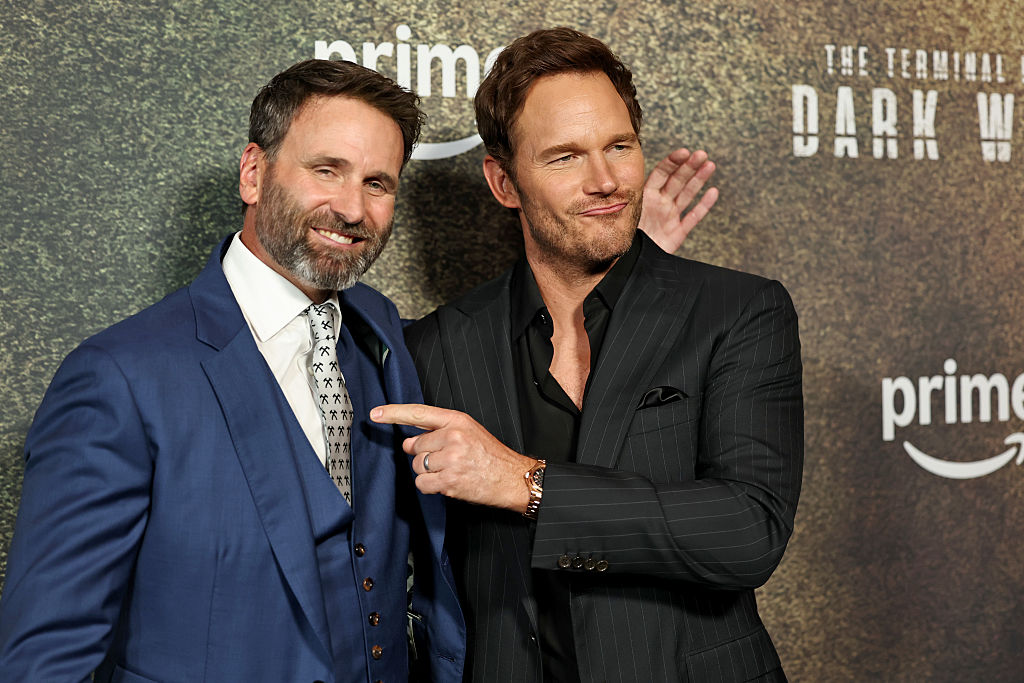






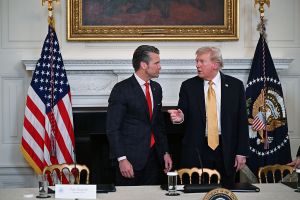
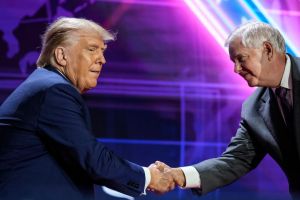
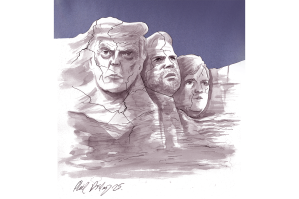
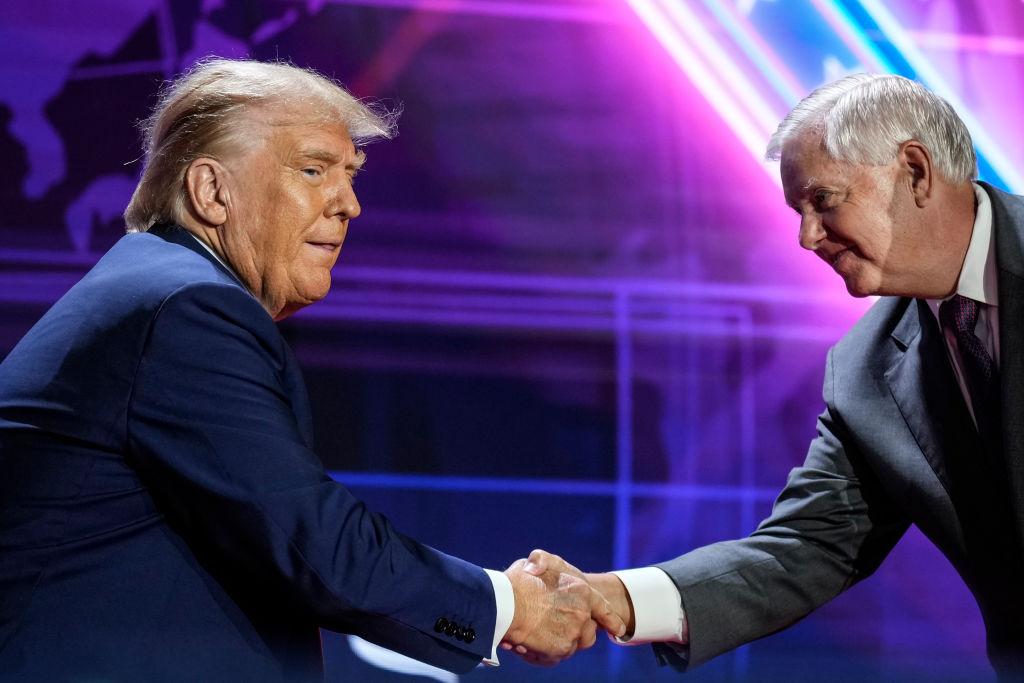
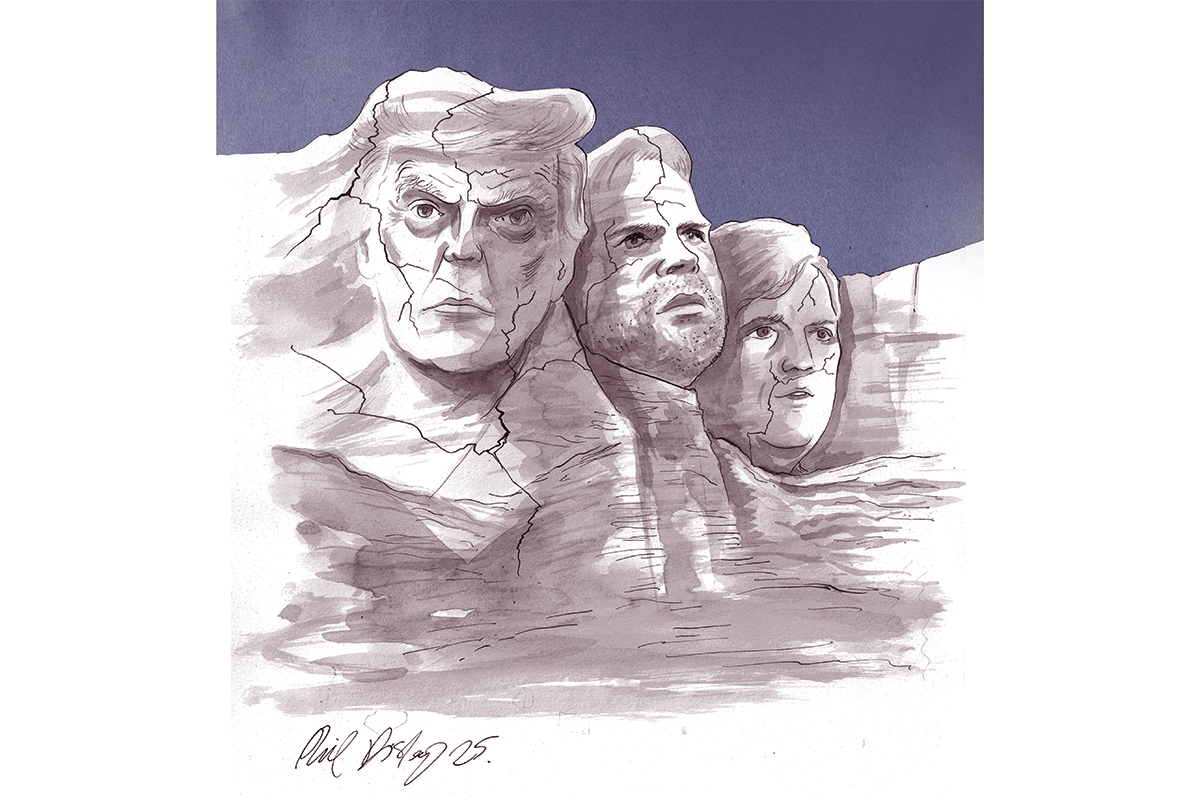
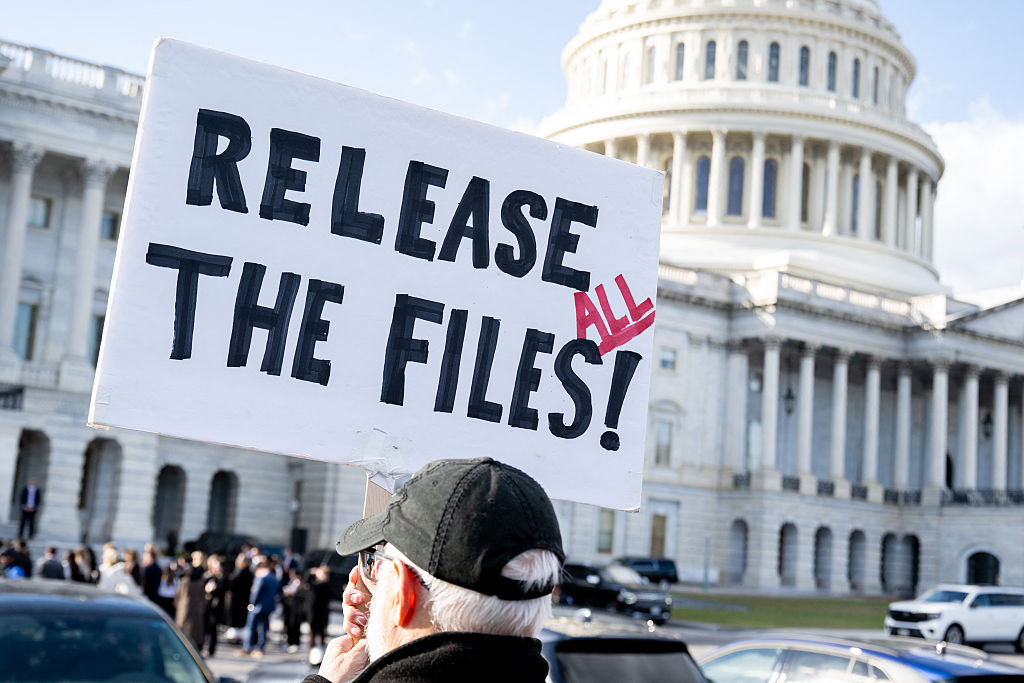

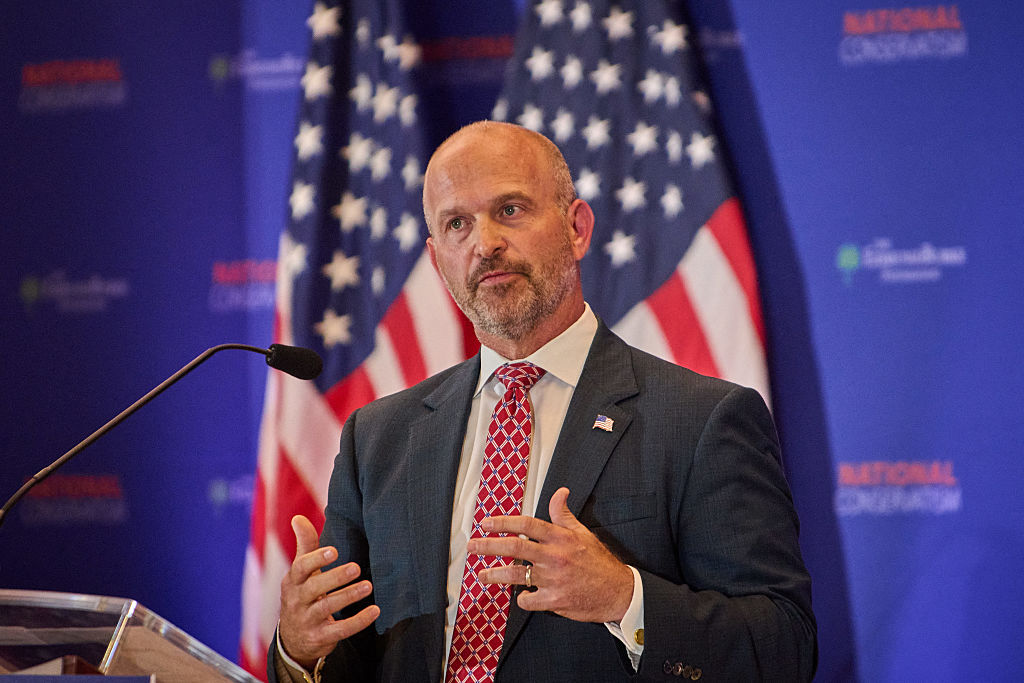
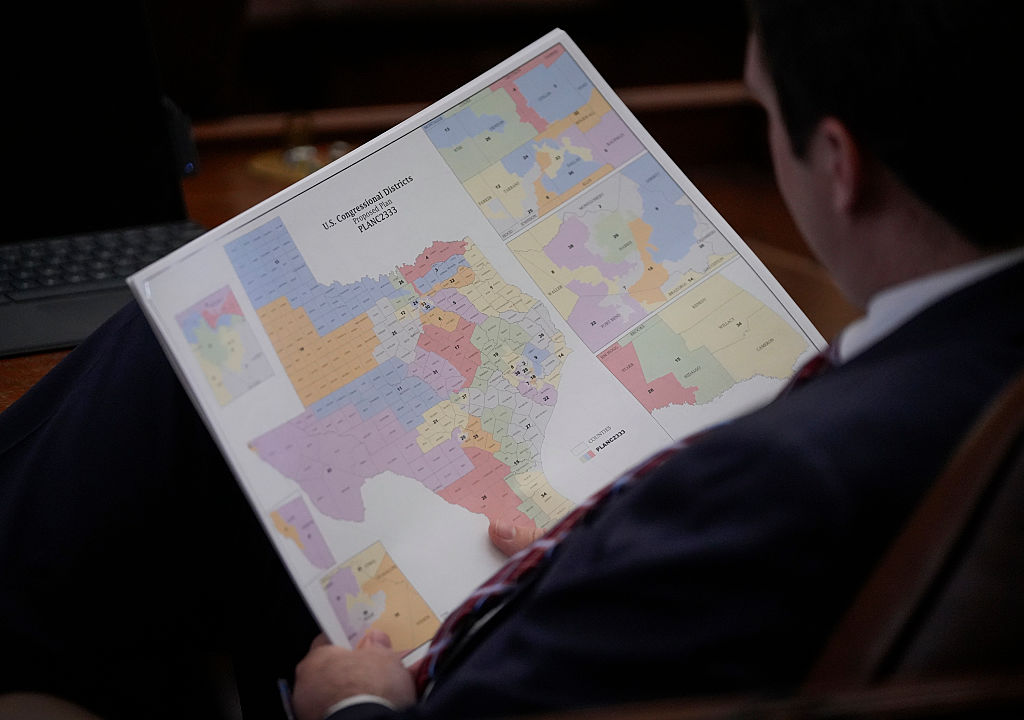







Leave a Reply